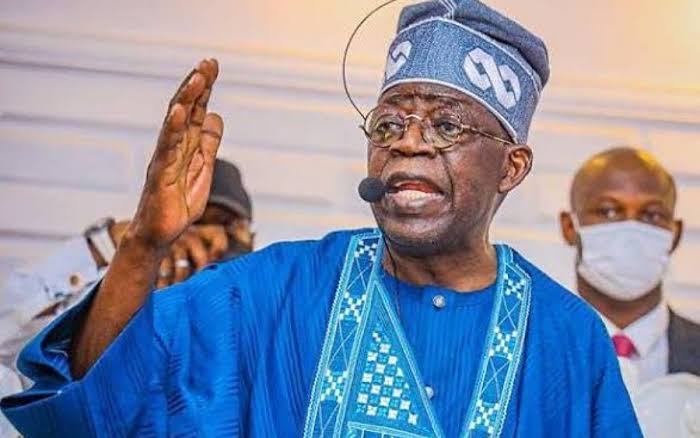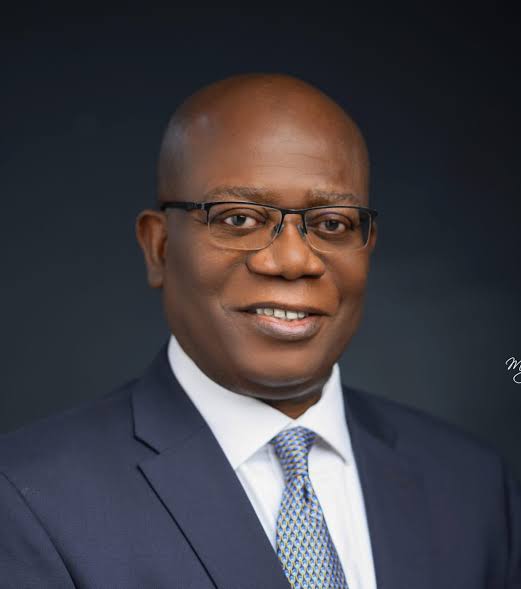News
Reps Seek Timely Submiission of MTEF, 2025 Appropriation Bill

News
Reps Debate 2025 Budget Estimates, Demand Better Allocation for Security, Agriculture

News
Tinubu expresses sadness over Ibadan stamped victims, demands probe

President Bola Tinubu has expressed sadness over the victims of the tragic incident at a children’s funfair in Ibadan, Oyo State, which claimed innocent lives and left many others injured.
A day after the tragic incident, 35 minors have been confirmed dead in a stampede at a funfair held at Islamic High School, Orita Bashorun, the state capital.
The President in a statement by his spokesman, Bayo Onanuga, extended his condolences to the government and people of Oyo State and, most importantly, to the grieving families who have lost their children in the unfortunate event.
President Tinubu has urgently directed the relevant authorities to investigate the circumstances of this tragedy thoroughly,” the statement read.
The President extends his heartfelt condolences to the Government and people of Oyo State, as well as to the grieving families who have lost their beloved children.
“In this moment of mourning, President Tinubu stands in solidarity with the affected families and offers prayers that the Almighty God will grant peace to the souls of those who have departed in this unfortunate event.”
Tinubu highlighted that it is imperative to determine whether negligence or deliberate actions contributed to this painful incident, ensuring a transparent and accountable process.
He also urged the Oyo State Government to take every necessary measure to prevent such a tragedy from reoccurring.
Among the essential actions are a comprehensive review of all public events’ safety measures, strict enforcement of safety regulations, and regular safety audits of event venues.
“Furthermore, President Tinubu calls on event organisers to prioritise the safety of all attendees, especially children. He stresses the importance of integrating professional security, protocol, and logistics at events to ensure the utmost safety of all participants,” the statement read.
He reiterated his administration’s commitment to the safety and well-being of children, arguing that no event should ever compromise their safety or take precedence over their lives.
News
How soldiers damaged my house for doing my job – ECTDA Chair, Hon. Uche Anya

The Chairman of the Enugu Capital Territory Development Authority, ECTDA, Rt. Hon. Uche Anya has narrated how soldiers from 82 Division of the Nigeria Army invaded his residence by 2.30am and destroyed his residence for carrying out a town planning regulation on an army property in Enugu.
According to Anya, the soldiers who some of them were on mufti, in the wee hours of Sunday morning, invaded his residence with armoured personnel carriers, forcefully jumped into his compound and destroyed most parts of his house and abducted him.
His offence, he explained, was that he demolished a fence that was being made round an army property at GRA area of the Coal City, which the army did not obtain approval plan and permit from his office before embarking on the construction.
“We pleaded with them that we are from the ECTDA and needed to see their approved plan and permit but they asked me to call the General Officer Commanding (GOC) 82 Division, Enugu.
“We insisted on seeing their approval, which they did not provide, leading to our stopping them from working and marking the place with ‘Stop Work’ notice immediately.”
He said that he thereafter reached out to the GOC and informed him about what transpired, but that the army said that they were trying to secure their land.
“I told him that under our law, once a development is taking place in the capital territory, there must be permission. So, three days later, in the course of our routine work, we discovered that they had wiped out our stop work order and proceeded with the work. We rolled down our equipment and pulled down the fence because they reneged on our agreement,” Anya narrated.
The Capital Territory Chairman said that two hours later, he started noticing strange movement around his street, with some people taking photographs.
“So, around 2:30a.m, two Armoured Personnel Carriers (APCs) arrived on my street. Some people in mufti with guns jumped into my compound and I was seeing them through my CCTV. They tried to break into the house but it took them almost 90 minutes to break in through the kitchen.”
When our correspondent visited Anya’s residence, there was a total smash of most properties in the house starting from the gate to the entrance door and windows, television sets, CCTV cameras and so many other things were in complete ruin.
-

 News23 hours ago
News23 hours agoReps Call for Revival of NAPAC to Boost Transparency, Accountability
-

 News22 hours ago
News22 hours agoReps Recommends Delisting NECO, UI, Labour Ministry, 21 Others From 2025 Budget
-

 News16 hours ago
News16 hours agoLawmaker laments over 2023, 2024, 2025 budget running in one circle
-

 News16 hours ago
News16 hours agoVideo: Tinubu Arrives Lagos, Meets Old ‘Friend’ Papa Ajasco
-

 News23 hours ago
News23 hours agoNigeria Needs Comprehensive Reforms To Expand Its Tax Base – Speaker Abbas
-

 Sports15 hours ago
Sports15 hours agoI Failed In Front of the World Four Years Ago — Lookman’s Touching Speech After Winning CAF Award
-

 Economy16 hours ago
Economy16 hours agoUK inflation rises further ahead of Bank of England rates decision
-

 News16 hours ago
News16 hours agoLagos Mosque Takes Down ‘Jesus Christ is Not God’ Banner After Backlash







